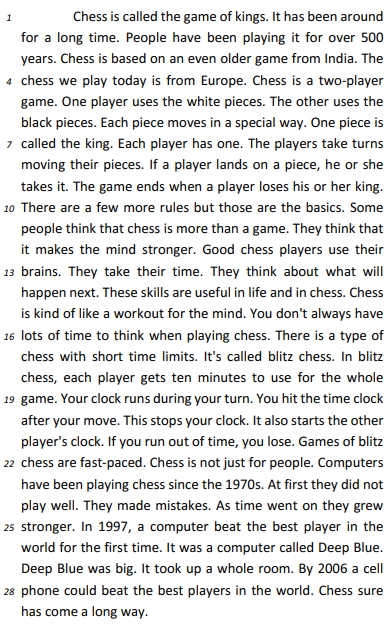Comics: Trash or Treasure
In Japan, they call them ‘manga’; in Latin America, ‘histotietas’; in Italy, ‘fumetti’; in Brazil, ‘história em quadrinhos’; and in the U.S., ‘comics’. But no matter what you call them, comics are a favorite source of reading pleasure in many parts of the world.
In case you are wondering how popular comics are, the best-selling comic title in the U.S. sells about 5 million copies a year. All of Mexico’s comic titles together sell over 7,5 million copies a week. But Japan is far the leading publisher of comics the world.
Manga account_______. nearly fifty percent of all the books and magazines published in Japan each year. And few magazines of any kind in the world can match this number: Shonen Jump, the leading comic title, has a circulation of 6.5 million copies week!
Ever since comics first appeared, there have been people who have criticized them. In the 1940s and 50s, many people believed that comics were immoral and that they caused bad behavior among young people. Even today, many question whether young people should read them at all. They argue that reading comics encourages bad reading habits.
But some educators see comics as a way to get teenagers to choose reading instead of television and video games. And because of the art, a number of educators have argued that comics are a great way to get children to think creatively. More recent research has suggested that the combination of visuals and text in comics may be one reason young people handle computers and related software so easily.
In Japan, the Education Ministry calls comics ‘a part of Japan’s national culture, recognized and highly regarded abroad’. Comics are increasingly being used for educational purposes, and many publishers there see them as a useful way of teaching history and other subjects.
No matter how you view them, comics remain a guilty pleasure for millions worldwide.


